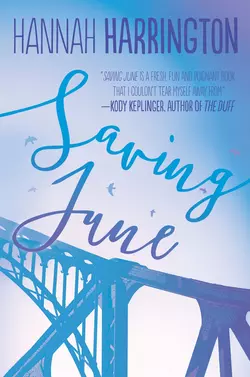Saving June

Hannah Harrington
Тип: электронная книга
Жанр: Современная зарубежная литература
Язык: на английском языке
Стоимость: 542.29 ₽
Статус: В продаже
Издательство: HarperCollins
Дата публикации: 16.04.2024
Отзывы: Пока нет Добавить отзыв
О книге: ‘With a powerful story, characters that truly come alive, and a romance worth swooning over, Saving June is a fresh, fun, and poignant book that I couldn′t tear myself away from.’ – Kody Keplinger, author of The DUFFIf she′d waited less than two weeks, she′d have been June who died in June. But I guess my sister didn’t consider that. When sixteen-year-old Harper’s sister June, the perfect, popular, pretty one to Harper’s also-ran, commits suicide just before her high school graduation, nothing in Harper’s world makes sense anymore.With her family falling apart, Harper has a plan – steal June’s ashes and take her sister to the one place she always wanted to go: California. Embarking on a wild road trip of impromptu gigs and stolen kisses with mysterious musician Jake, the one person who could hold answers about June, Harper’s determined to find peace for her sister. But will she find peace for herself along the way?Praise for Hannah Harrington‘fresh, fun and poignant’ – Kody Keplinger‘tender, funny and moving’ – Courtney Summers‘raw, powerful, and absolutely spot-on’ – YA Reads.com